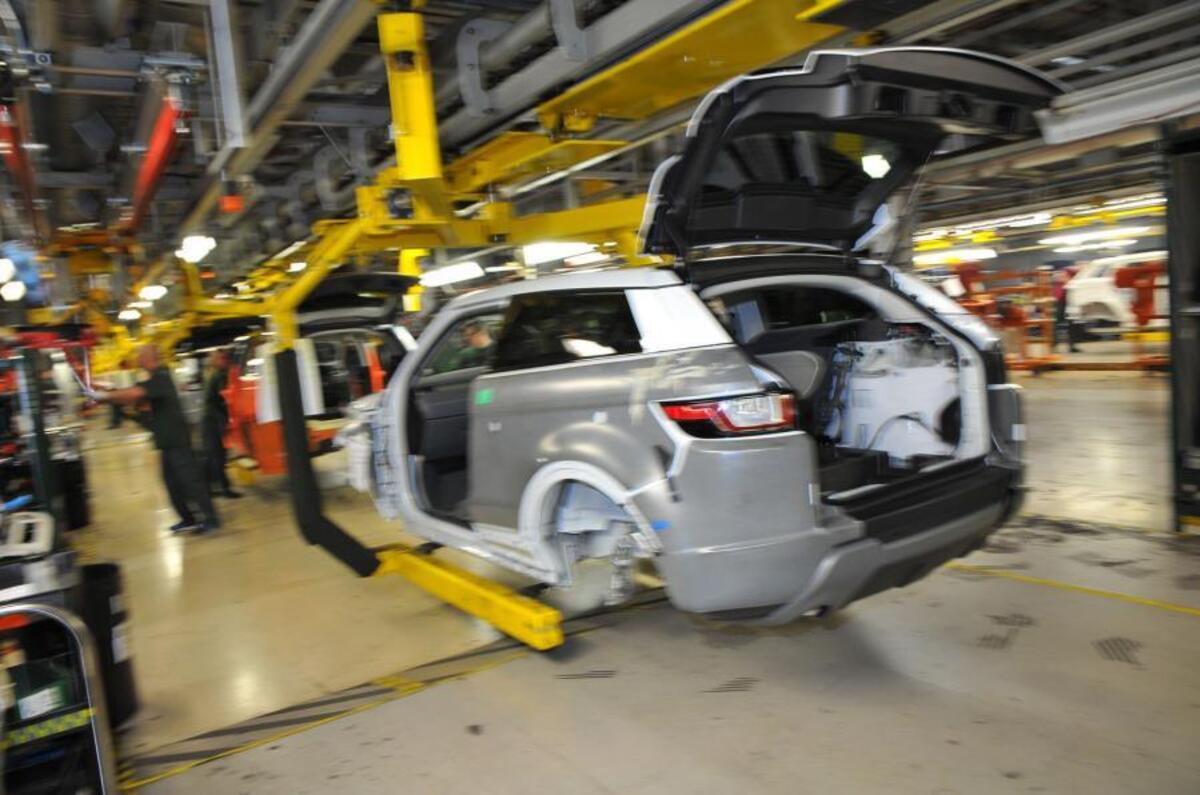Jaguar Land Rover posted a pre-tax loss of £3.4 billion in the final three months of 2018, caused by a massive one-off adjustment in the value of its investments.
The loss includes a one-off £3.1 billion ‘exceptional charge’, resulting from the firm deciding to adjust the ‘carrying value’ of its capitalised investments.
Half of the charge was due to the firm acknowledging that investments in machinery and plants were worth less than previously thought. The other half is understood to be effectively lowering th evalue of past investment in product development, in recognition it will not reclaim that with future sales.
It is likely a recognition that previous investment in technology to build diesel-engined cars – which has long made up the bulk of Jaguar Land Rover's sales – won't be recouped due to the slump in demand for the powertrain.
Excluding that one-off charge, Jaguar Land Rover posted a £273 million pre-tax loss between October and December, against revenues of £6.2 billion. The firm sold 144,602 vehicles between October and December 2018, down from 154,447 in the same period of the previous year. The £273 million pre-tax loss compares with a £90 million loss in the previous quarter of 2018, running from July until September.
Jaguar Land Rover said that drop in profit was down to a slump in sales in the struggling Chinese market, which offset a slight rise in sales in Europe and the US.
Jaguar Land Rover boss Ralf Speth said the one-off £3.1 billion charge was part of the firm’s Charge and Accelerate transformation schemes, designed to invigorate the struggling company with around £2.5 billion of investment. The firm said it has made £500 million of cash improvements through measures introduced as part of those schemes.
“We are taking the right decisions to prepare the company for the new technologies and strong product offensive that will enable a long-term future of sustainable, profitable growth,” said Speth.
Jaguar Land Rover recently announced that it would cut around 4500 jobs as part of its cost-saving measures and the firm noted that it would incur £200 million in redundancy costs in the financial quarter than runs from January to March this year.
Speth noted that Jaguar Land Rover is continuing to invest in its electrification programmes, including a plan to build a new battery assembly centre in the UK, and in its new manufacturing facility in Slovakia. The firm spent £1 billion on investments during the quarter.
“This is a difficult time for the industry,” said Speth, “but we remain focused on ensuring sustainable and profitable growth, and making targeted investments that will secure our business in the future.”
Notably, Jaguar Land Rover's losses meant that Indian parent company Tata Motors Ltd posted its biggest-ever quarterly loss in the same period. The firm recorded a loss of £2.93 billion for the three months, which was largely down to the one-off charge. Overall, Tata Motors's revenues were up 5.0%, although the Tata brands did decline slightly in its home market.
Read more








Join the debate
Add your comment
It's long been talked about
In comparison...
China might bounce back (and I'd be more concerned about the US economy going t*ts up) but JLR probably does need a major management/product planning shakeup (but please no more big name management consultants!).
Ironic in news yesterday that global warming seems to be worse than predicted - JLR ought to spend a more few quid promoting the CO2 relative benefits of diesel (if they can get their DPF's to work properly...)
China...
China was always going to be the stumbling block, with there economy boooming along for so many years while Western economy toiled the Wheels have started to loosen a little on the Chinese Wagon, all of a sudden nobody there wants a Western plutocratic Car, the status symbol, yet, we’re getting things made in China because China gets things done, now that things are slowing in China our brands are not in demand as like others from Europe...